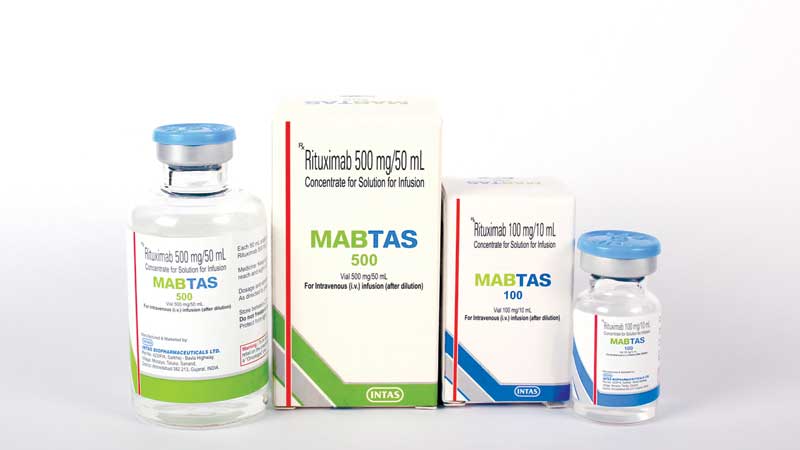RITUXAN®, the Treatment of Non-Hodgkin's Lymphoma, Leukemia, Arthritis, Approved in Canada
Saturday, 20 April 2019 08:00.AM
- Teva Canada Announces the Approval of TRUXIMA™, the first biosimilar to RITUXAN® in Canada for the Treatment of Non-Hodgkin's Lymphoma, Chronic Lymphocytic Leukemia and Rheumatoid Arthritis.
Teva Canada Innovation, a unique provider of generic and specialty medicines, announces that Health Canada has granted a notice of compliance (NOC)1 for TRUXIMA™ (rituximab), the first biosimilar to RITUXAN®2 (rituximab) in Canada for the treatment of adult patients in: Non-Hodgkin's Lymphoma (NHL), Chronic Lymphocytic Leukemia (CLL) and Rheumatoid Arthritis (RA).
"Biosimilars are a new chapter in the therapeutic oncology setting in Canada and represent a growing focus for Teva since they will allow us to increase access to important therapeutic options," said Christine Poulin, Senior Vice President and General Manager of Teva Canada. "Moreover, Teva's biosimilars will have the potential to reduce costs by providing lower-cost treatment options for patients."
First approved in South Korea in November 2016, TRUXIMA™ was approved by regulatory authorities including the European Commission in 2017 and the Food and Drug Administration (FDA) in 2018 for certain indication in the U.S. This announcement establishes Teva's position in the biosimilars space and leverages its existing expertise in the oncology market.
The Health Canada NOC issued to TRUXIMA™ is based on a review of a comprehensive data package inclusive of foundational and extensive analytical characterization, nonclinical data, clinical pharmacology, immunogenicity, clinical efficacy, and safety data. The totality of evidence submitted for TRUXIMA™ demonstrated that TRUXIMA™ and RITUXAN® are highly similar and there were no clinically meaningful differences in safety and efficacy between TRUXIMA™ and RITUXAN® for the approved indications. TRUXIMA™ is administered via intravenous infusion in varying doses depending on the approved indication.
"For years Teva has been helping millions of Canadians have access to specialty and generic medicines, and now we are proud to be at the forefront of this new era in Canadian health care," concluded Ms. Poulin.
About TRUXIMA™ (rituximab)
In 2016, TRUXIMA™ (rituximab for injection) became the first rituximab biosimilar monoclonal antibody (mAb) approved in Korea. TRUXIMA™ was approved by the European Commission in February 2017 and has launched in 26 European countries since then, including Germany, France, Italy, the UK, and the Netherlands. In 2019, TRUXIMA™ became the first-ever RITUXAN® biosimilar approved by Health Canada for the treatment of adult patients in: Non-Hodgkin's Lymphoma (NHL), Chronic Lymphocytic Leukemia (CLL) and Rheumatoid Arthritis (RA).
About non-Hodgkin lymphoma4
Non-Hodgkin lymphoma (NHL) is a type of cancer that affects the lymphatic system. It generally develops in the lymph nodes and lymphatic tissues. In some cases, NHL involves bone marrow and blood. NHL is not just one disease, it is actually a diverse group of blood cancers that share a single characteristic in how they develop. NHL has many different subtypes, which are either indolent (slow growing) or aggressive (fast growing).
Approximately 36,175 Canadians are living with non-Hodgkin lymphoma, or are in remission.
An estimated 8,000 new cases of non-Hodgkin lymphoma were diagnosed in Canada in 2016.
The median age at diagnosis of non-Hodgkin lymphoma is 66 years.
NHL is the sixth most commonly diagnosed cancer in Canada.
The lifetime probability of developing non-Hodgkin lymphoma is one in 43 for men and one in 50 for women in their lifetime.
About Chronic lymphocytic leukemia5
Chronic lymphocytic leukemia (CLL) is a cancer that starts in blood stem cells. Stem cells are basic cells that develop into different types of cells that have different jobs. As the stem cells of the blood develop, they become blast cells (blasts), which are immature blood cells. In leukemia, there is an overproduction of blast cells. These blast cells develop abnormally and do not develop into mature blood cells. Over time, the blast cells crowd out normal blood cells so that they cannot do their jobs. When leukemia is diagnosed, these blast cells may be called leukemia cells. The most recent incidence and mortality statistics for chronic lymphocytic leukemia are from 2013:
From an estimated of 2,460 Canadians diagnosed with CLL (1,495 men and 965 women), 608 died from it (396 men and 212 women). The median age at the time of diagnosis is 71 for CLL.6
About Rheumatoid Arthritis7
Rheumatoid arthritis (RA) is an inflammatory disease that can affect multiple joints in the body. RA is an autoimmune disease where the body's immune system - which normally functions to protect us against infections - mistakenly attacks the lining of the joints. The cause of this malfunctioning immune system is still unknown and while there is no cure for RA, there are some very effective medications and therapies to control the symptoms and results of the inflammation.
About one out of every 100 adult Canadians has RA. That's about 300,000 Canadians. Anyone can get RA and at any age. RA affects women two to three times more often than men. There is no cure for RA. However, people who are diagnosed and treated early can avoid pain and damage to their joints, and lead active and productive lives.
